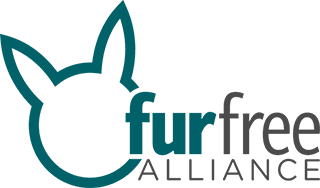
International seminar in Sarajevo on the impact of fur farming
Last Thursday international experts gathered in Sarajevo to discuss the negative impact of fur farming on animal welfare and the environment. The event, organised by the Fur Free Alliance in collaboration with the Anti-Fur Coalition Bosnia and Herzegovina, addressed the problems associated with any extension of the phase-out period of the Bosnian fur farming ban.
The seminar was attended by various stakeholders in the fields of veterinary science, environmental protection, agriculture and politics. Representatives of the social democratic party Democratic Front and the Bosnian Aarhus Center and Friends of the Earth expressed their intention to actively support a swift implementation of the Bosnian fur farming ban.
In 2009 the parliament of Bosnia and Herzegovina voted for a law to prohibit fur farming after a 9-year phase-out period. Earlier this year, one year before the ban would take effect, a law amendment was proposed that would extend the ban for another 10 years. Organisations worldwide have since urged Bosnia and Herzegovina to stay committed to the 2009 Act and make an end to the cruel practice of fur farming in 2018.
Pawel Rawicki, a representative of the Polish organization Otwarte Klatki, discussed the negative impact of fur farming on local nature, communities and economy. Between 2012 and 2017 nearly 100 protests of local residents were held in Poland to prevent the building or expansion of fur farms. A severe concern for local residents is the heavy odor of fur farms that can be smelled up to 6 kilometers away. Fly nuisance in neighboring buildings is another major complaint of local communities. The Polish case, Rawicki stresses, presents a grim warning to the citizens of Bosnia and Herzegovina:
‘Local industries and real estate value suffer from the presence of large fur factory farms, which are most often owned by foreign investors in Poland (…) The fur industry exploits weak economies in eastern European countries.
Speakers from the UK, Croatia en Germany discussed how the inherent cruelty of fur farming – as a result of the confinement of active carnivores in small wire mesh cages – has led their governments to decide to end fur farming. The serious animal welfare problems and the ethical concerns of society are causing an increasing number of European governments to ban fur farming in recent years.





